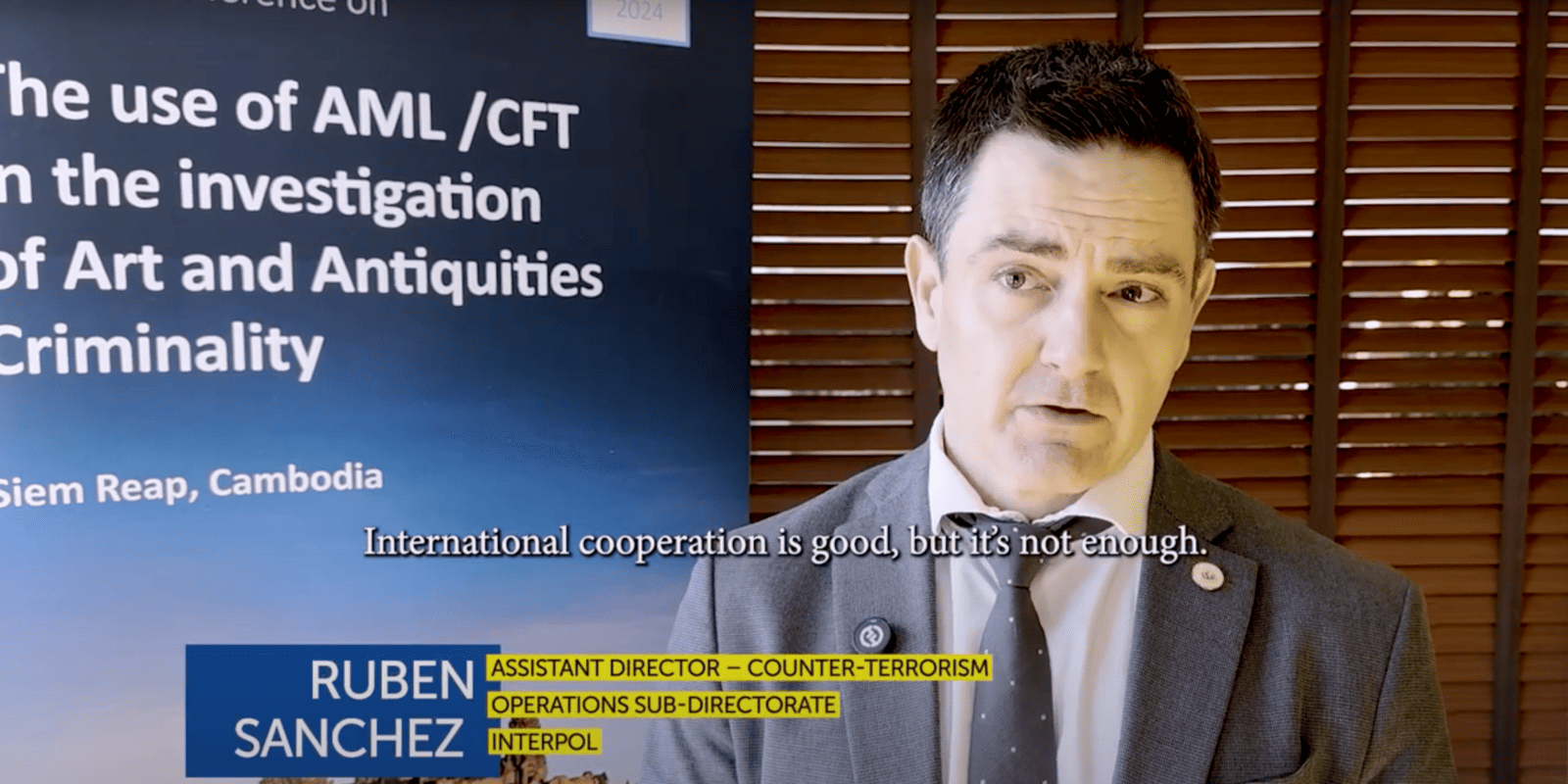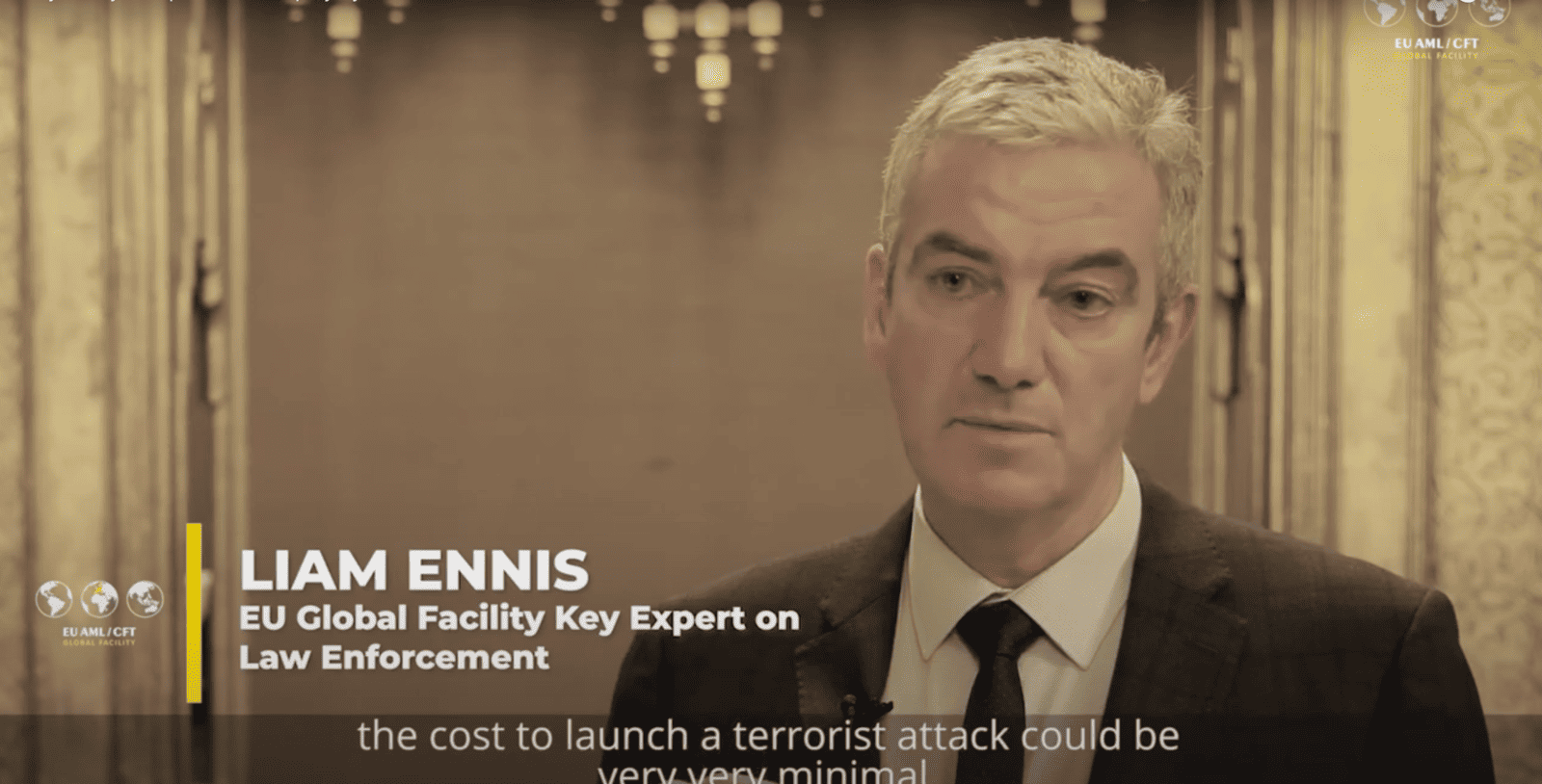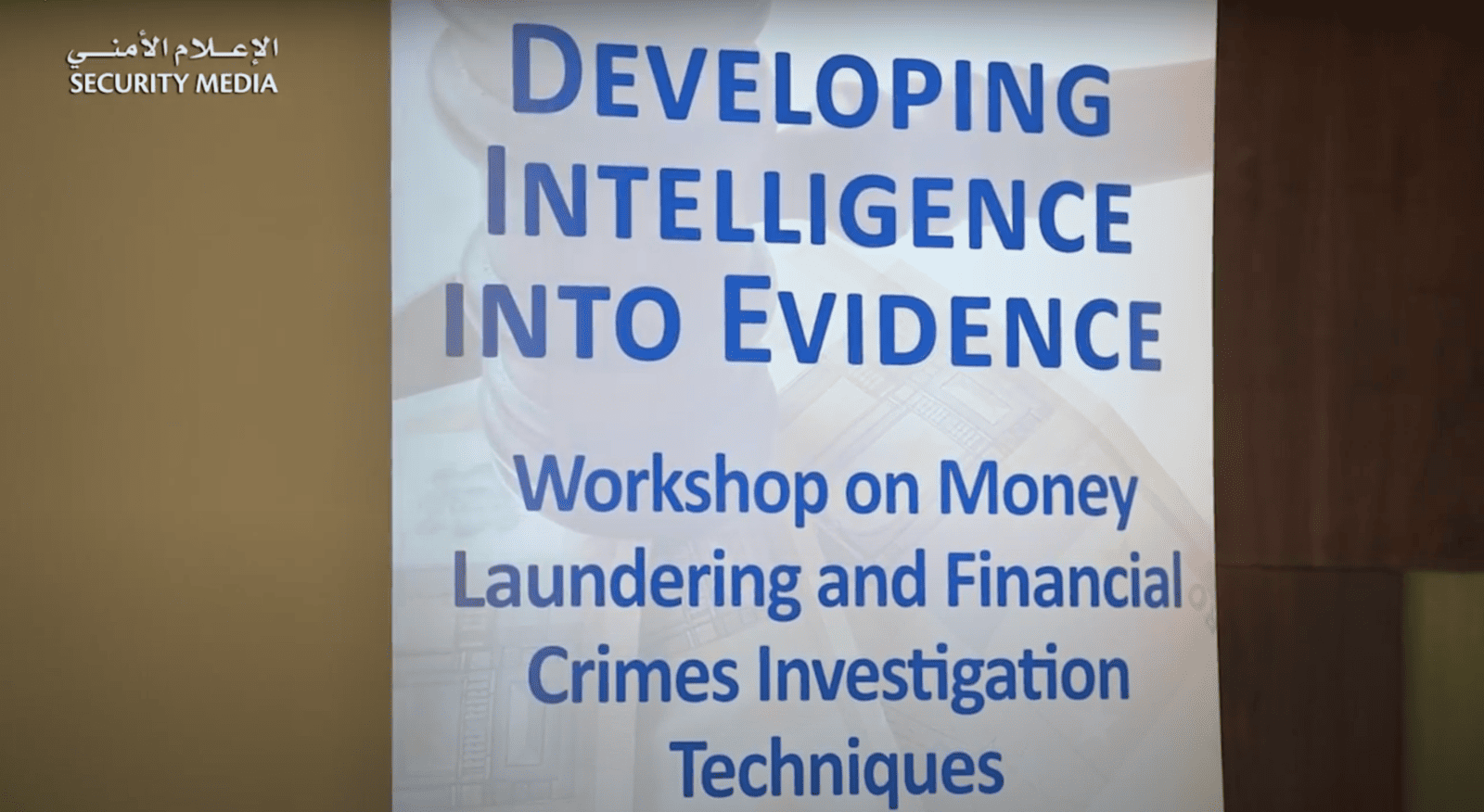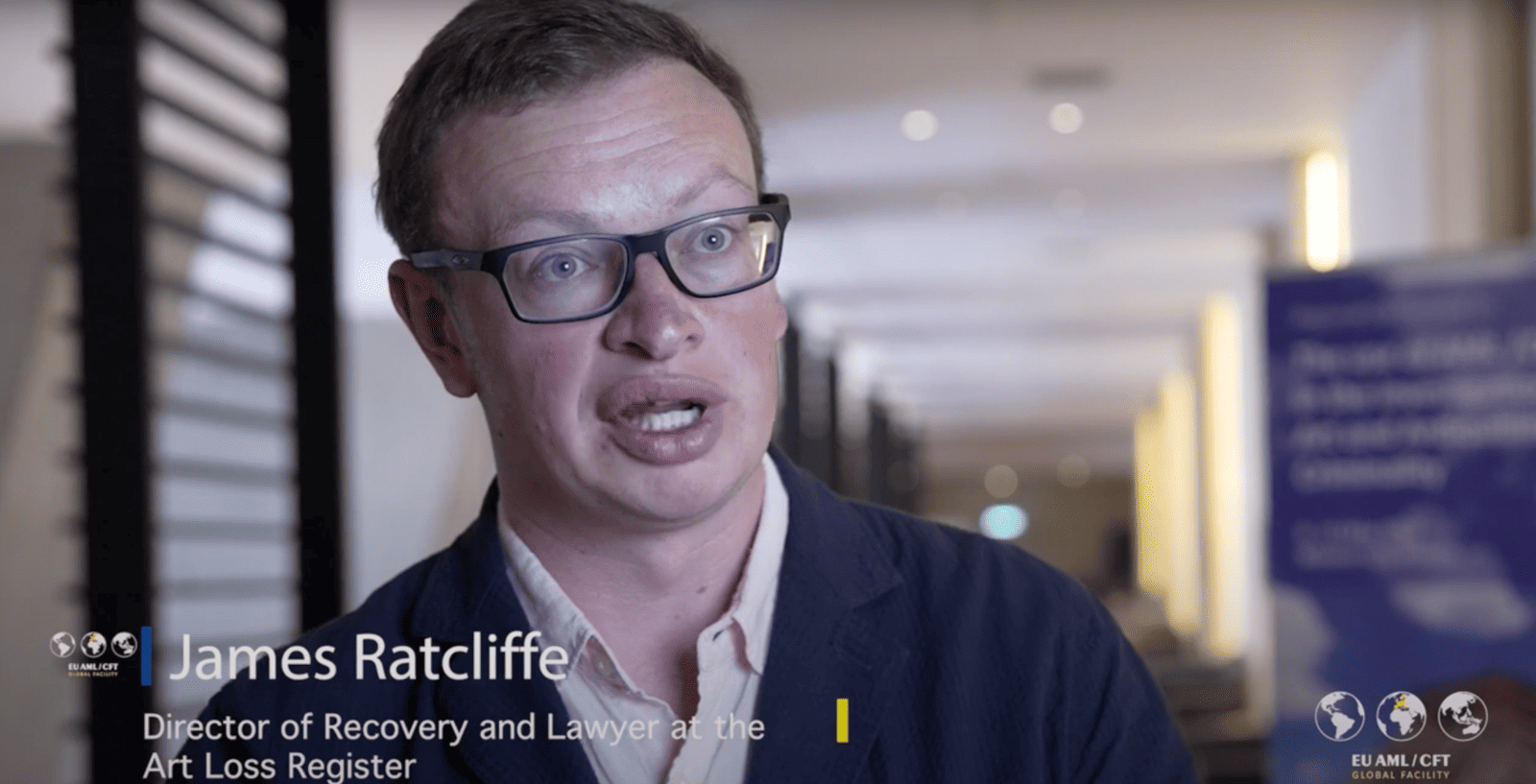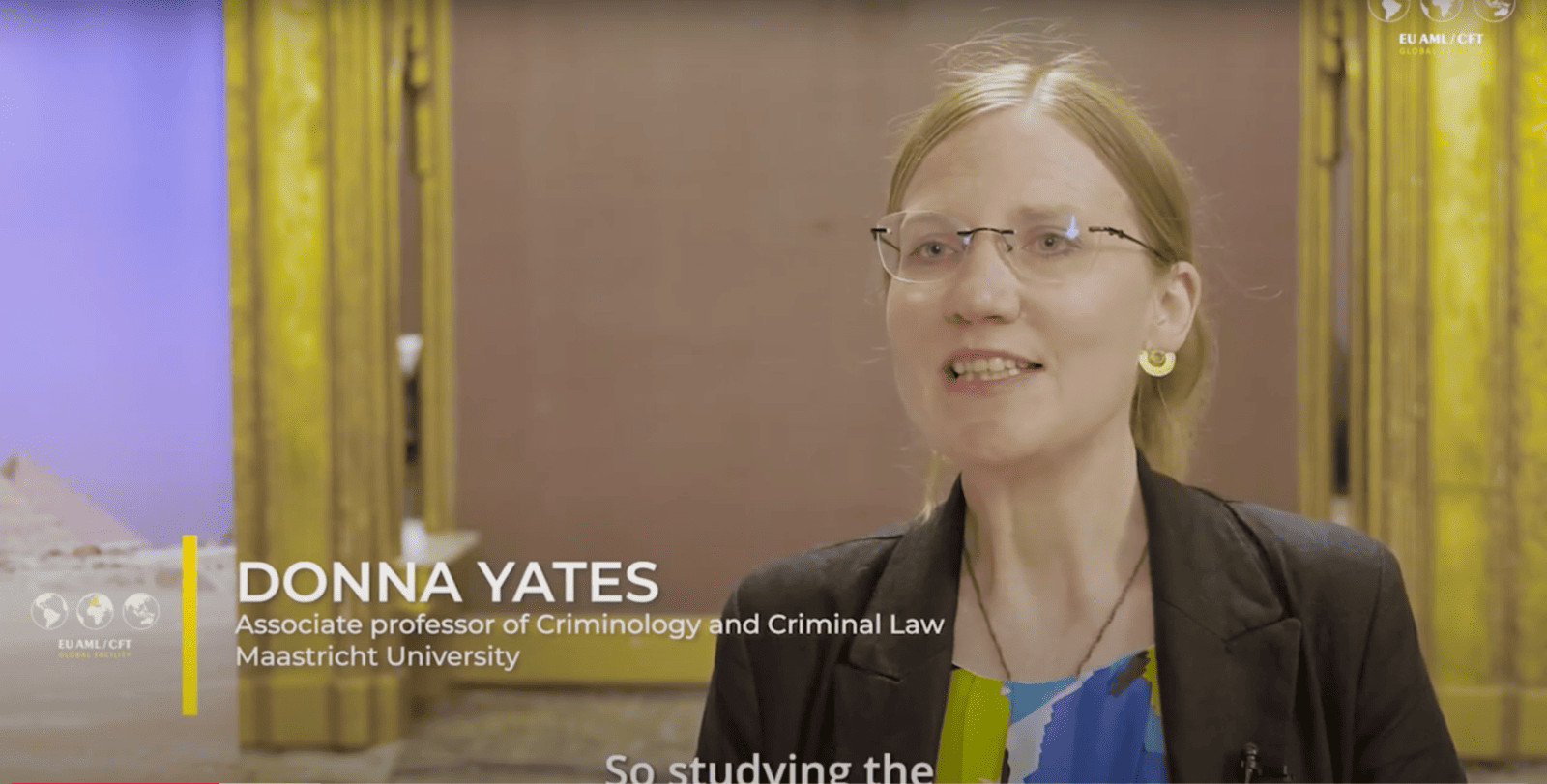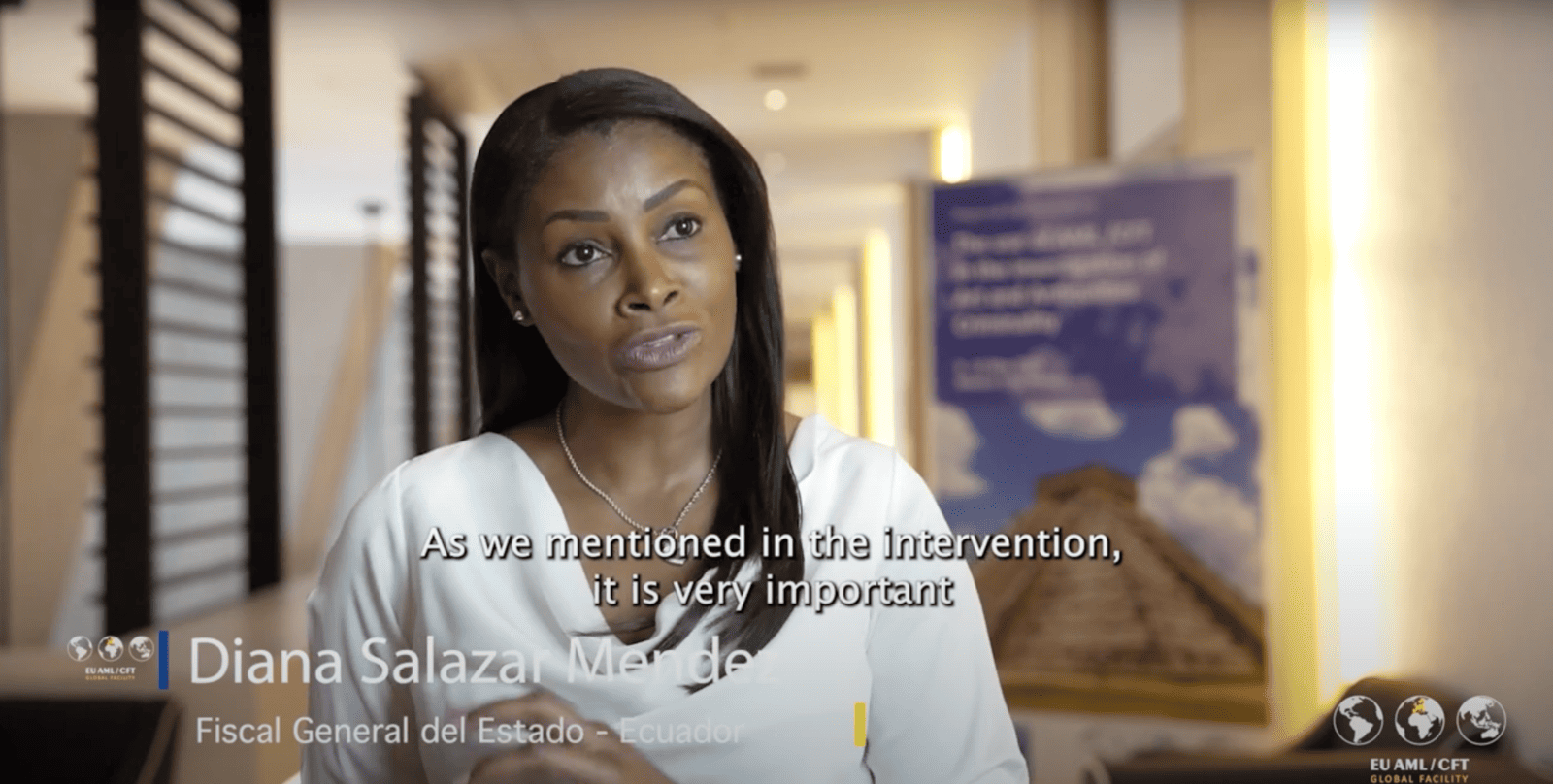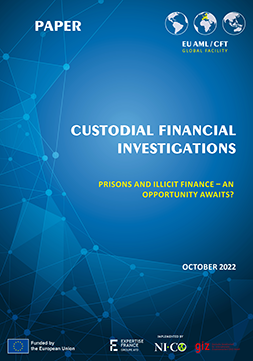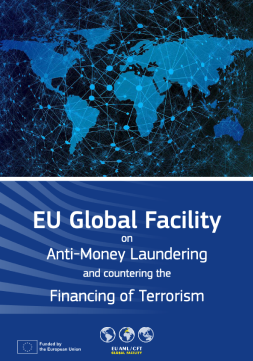Current Trends and Threats
The EU Global Facility’s Law Enforcement and Intelligence component plays a crucial role in providing technical assistance to partner countries with a primary focus on addressing current trends and threats in various thematic areas. These innovative areas for research and development are identified and designed to be part of a proactive approach to identify how operational effectiveness can be improved in a practical and sustainable manner.
The rationale for the thematic areas is to identify initiatives which will add concrete value in terms of training and quantifiable operational benefits i.e. how to operationalise policy and procedures.
Art and Antiquities Trafficking and AML/CFT Investigations
Art and antiquities trafficking involves the illegal trade of cultural artifacts and antiques, which constitutes a transnational crime posing significant challenges for Law Enforcement Agencies (LEAs). Law enforcement resources are initially focused on immediate and subsequent investigations, but as the crime crosses jurisdictions, local LEAs may lack the necessary resources and expertise to handle complex, cross-organisational, and cross-jurisdictional evidence-based processes. Criminal actors exploit the complexity and transnational nature of these crimes to evade detection and apprehension
The EU Global Facility is actively engaged in addressing this issue, with the aim of ultimately developing a practitioner guidance investigation manual to counter cultural-related crimes and ML/TF associated with art criminality. The project is in the process of organising a series of four regional conferences aimed at enhancing information sharing between public and private sectors, finding solutions to combat art trafficking, and raising awareness about the criminalisation of antiquities. The conferences focus on leveraging AML legislation in the investigative process to counter these crimes effectively. The target audience includes FIUs, Prosecutors, LEAs, and individuals involved in cultural crime management and investigation. Ultimately, the EU GF’s efforts aim to protect countries’ heritage and reduce the impact of AML/CFT in these lucrative markets.
Multi-Agency Custodial Financial Investigations
The exploitation of financial intelligence available during custodial detention processes has been identified as a key element in AML/CFT strategies. However, one of the main difficulties in acknowledging and addressing the existence of an illicit economy within national prison systems is openly admitting the presence of organised criminal activity within prisons. Indeed, this it goes against public expectations of imprisonment as a means of punishment and rehabilitation.
Nevertheless, the reality is that the prison environment, with its restrictions and scarcity, creates a high cash value for certain items. This scarcity leads to the development of a sophisticated business model for supplying contraband, driven by the profit principle. Items that are relatively cheap and easy to acquire externally gain significant value within the prison setting.
Despite this, there is hesitancy to openly communicate this fact, leading to the illicit custodial economy being often ignored or tolerated rather than addressed directly.
Through a pool of specialised experts, the EU Global Facility has been developing multi-disciplined webinars, publications and events aimed at targeting this subject matter.
Metaverse
Metaverse is a virtual, interconnected, and immersive digital universe where users can interact, socialise, and engage in various activities using virtual reality (VR) or augmented reality (AR) technologies. It encompasses a wide range of online platforms, games, and virtual worlds.
This very complex new concept sets itself apart from other online environments by its huge scale, complexity and level of interconnectivity. In this light, there have been growing concerns about its links to AML/CFT efforts. Indeed, the metaverse’s decentralised nature and pseudonymous transactions can make it an attractive environment for illicit activities, such as money laundering and terrorist financing, as it may provide a cloak of anonymity and facilitate cross-border fund transfers. Regulators and stakeholders need to carefully monitor and implement AML/CFT measures within the metaverse to combat these emerging risks effectively.
As such, the EU Global Facility has designed a new set of training delving into crucial aspects related to the Metaverse and Virtual Assets (VAs), with a primary focus on AML/CFT investigations, including identification of illicit activity in VAs and the assessment of the effectiveness of current AML/CFT measures.
Illegal Mining (in Africa and Latin America)
The increased global footprint and impact of illegal/conflict-related mining have informed the EU Global Facility’s decision to conduct a produced a substantial analytical review of the subject matter.
Video Gallery
Discover some of our experts’ interviews on various law enforcement-related topics.
INTERPOL, Financial Crime and the EU
Ruben Sanchez of INTERPOL shares how terrorist financing is evolving -from crypto to cross-border flows- and why trust, tech, and EU partnerships are key to fighting it.
The journey of a stolen antiquity
EU AML/CFT Global Facility Key Expert on Law Enforcement Liam Ennis takes you on the journey of a stolen art piece and the intricate links one can find between art trafficking and terrorist financing.
Turning Intelligence into Evidence
Look back at this workshop on “Intelligence into Evidence – Money Laundering and Financial Crimes Investigation Techniques for the Representatives of Penal Chain of the UAE”, co-organised with the Ministry of Interior of Abu Dhabi in November 2022.
‘Death, Debt and Divorce’ by James Ratcliffe
General Counsel and Director of Recovery at the Art Loss Register, James Ratcliffe delves into the enigmatic world of the international art trade, where criminality, ancient treasures, and the pursuit of justice intertwine.
Illicit Trade of Antiquities by Donna Yates
“There has been very little research on the illicit financial flows that go along with these objects and spread out the proceeds of this type of crime…”, world renown expert says during our Regional Conference on the use of AML/CFT in the Investigation of Art and Antiquities Criminality in Cairo, Egypt.
Diana Salazar, Attorney-General of Ecuador
She sheds light on the critical issue of cooperation with (and amongst) law enforcement agencies to face the challenges of AML/CFT, and find solutions to combat money laundering and terrorist financing especially with regards to art and antiquities trafficking.
Art Trafficking: how to use AML/CFT cooperation to fight it?
Through a series of Regional Conferences organised across the globe, the EU AML/CFT Global Facility seeks to promote collaboration between specialised experts to make better use of AML/CFT investigation techniques to put an end to the looting of art pieces and antiquities.
Our Areas of Support
Capacity Building
The EU Global Facility is actively engaged in capacity building training to help partner jurisdictions to strengthen their investigative techniques. The bilateral activities organised under the Law Enforcement component focus notably on
- Conducting Financial Investigations: Partner jurisdictions are equipped with the necessary knowledge and skills to conduct effective financial investigations, which are crucial in tracking and uncovering illicit financial activities.
- Managing Seized Assets: The training also covers the proper management of seized assets across both regulatory and law enforcement agencies. This ensures that assets obtained through legal processes are handled efficiently and transparently.
Fostering Cross-Agency Cooperation
Effective collaboration and exchange of information between law enforcement agencies and among various institutions involved in AML/CFT is crucial. However, these processes have been identified as problematic not only among regulators and law enforcement agencies but also between the public and private sectors. As a result, investigations and court prosecutions are negatively impacted.
To address this, the project focuses on one hand on promoting cross-agency cooperation.
The overarching aim of the Law Enforcement Pillar of the EU AML/CFT Facility is to operationalise AML/CFT policies and procedures for law enforcement agencies anywhere in the world. AML/CFT financial investigations, whilst specialist in nature, should be seen as a vital and embedded component in the overall investigative process. Financial investigations linked to AML/CFT should constitute an integral element of any such investigations rather than an add-on component. The technical assistance supplied through the EU Global Facility strongly reflects that ethos by emphasising the need for cooperation among different agencies, including police, customs, judiciary, and other relevant stakeholders.
The EU Global Facility has designed a specific course called “Turning Intelligence into Evidence” which aims to provide partner jurisdictions with the necessary tools to effectively utilise intelligence in legal proceedings, thereby strengthening the fight against transnational crime. This activity has been implemented in Jordan, the Seychelles, Trinidad and Tobago, Türkiye (and others) but also with a regional scope for Paraguay and Uruguay, Central Asia, South Caucasus and Somalia in Türkiye,
On the other hand, the project’s activities focus on encouraging information sharing. Through a series of workshops and training sessions, our experts work to enhance the understanding and importance of sharing intelligence across the entire penal chain.
Additionally, the project’s law enforcement component also focuses on developing a comprehensive understanding of the relationship between civil and criminal legislation. This effort aims to raise awareness among partner countries about the importance of creating a cohesive legal framework that facilitates seamless cooperation between civil and criminal justice systems.
Exploring Innovation
Within the confines of investigative process, the roles of criminal investigator, regulator, and intelligence gather are becoming increasingly blurred, while conversely the legislative powers are still confined to law enforcement. This is expected to only become more complicated as legislation and state expertise falls behind that of private business particularly in the field of crypto and virtual assets. Therefore, a crucial focus of the LEA component will be to address those challenges by fostering the cross-functional nature of the activities, while continuing research and in-depth scientific exploration of innovative topics.

